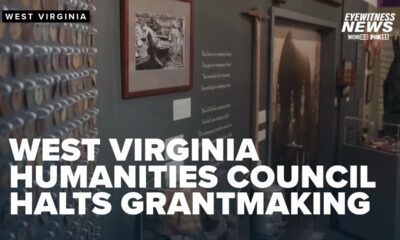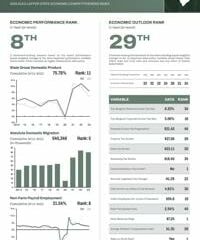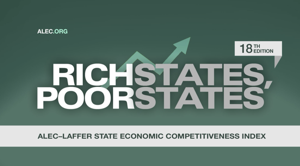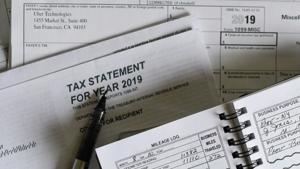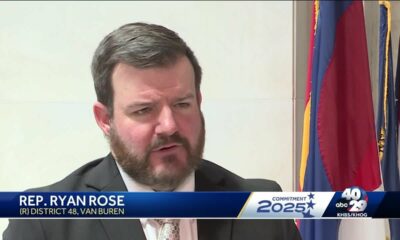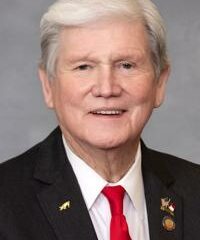News from the South - Kentucky News Feed
SB 89’s flood of harm to Kentuckians would go far beyond what its backers claim
SB 89’s flood of harm to Kentuckians would go far beyond what its backers claim
by Tom FitzGerald, Kentucky Lantern
March 7, 2025
Senate Bill 89, pending in the House Natural Resources and Energy Committee, would narrow the protections for Kentucky’s surface and ground waters, undoing 75 years of state safeguards for “rivers, streams, creeks, lakes, ponds, impounding reservoirs, springs, wells, marshes, and all other bodies of surface or underground water, natural or artificial.”
Responding to the public outcry against this draconian assault on clean waters, supporters of the bill are claiming that its narrowing of “waters of the Commonwealth” to mirror the U.S. Clean Water Act definition doesn’t remove protections for groundwater or threaten water quality of our rivers, lakes and streams. They say that all SB Bill 89 intends is to align the Kentucky surface water permit program with the federal Clean Water Act regarding which discharges need to obtain discharge permits.
If the proponents’ claim were true, there would be no need for the bill at all. For existing Kentucky Division of Water regulation, 401 KAR 5:045 Section 4(4), already excludes from the requirement to obtain a pollutant discharge elimination permit “a discharge that is not regulated by the U.S. [Environmental Protection Agency] under the Clean Water Act Section 402, 33 U.S.C. 1342.”
The harmful effects of SB 89 are far greater than what its supporters acknowledge. Narrowing the definition of “waters of the Commonwealth” will do grave damage to Kentucky’s land, water and people, far beyond just syncing state and federal discharge permit requirements. That’s because the definition of “waters of the Commonwealth” is the key to many other protections of surface and groundwaters, as well as waste management programs. Redefining the scope of protections causes harm far beyond the stated intent.
Proponents claim that groundwater will still be protected by other provisions of state and federal law, yet it is in Kentucky Revised Statutes Chapter 224 — the chapter that expressly prohibits water pollution — where SB 89 changes the definition of waters of the commonwealth and removes the pollution prohibitions for groundwater.
Other state laws do not clearly prohibit pollution of Kentucky’s groundwater, the source of water for over 1.5 million Kentuckians through 185 public water systems, and over 416,000 from private water wells and springs.
The Safe Drinking Water Act sets drinking water standards only for public water systems and does not protect groundwater quality for the hundreds of thousands of private domestic and agricultural wells in Kentucky. Ironically, Kentucky regulators would still require water well drillers meet standards for the wells that are drilled but would lose all ability to protect the groundwater that would come through those private wells.
And while the Safe Drinking Water Act would still require that the public water systems meet standards for the water they sell, their raw water treatment costs would rise as groundwaters lose protection and become susceptible to more contamination.
The Underground Injection Control program, which requires wells injecting wastes and wastewaters to seal off “underground sources of drinking water,” doesn’t protect all groundwater, but instead is limited to protecting groundwater usable for drinking rather than other domestic and agricultural uses. Nor does that law regulate all pollution of groundwater, just injections of wastewater through wells.
Wellhead protection areas don’t apply to private wells. Industry is floating an amendment to SB 89 to re-include public water wells and cave and karst features. This amendment would still leave most private water wells and much of the groundwater resources of Kentucky at risk of contamination.
It is undeniable that SB 89 will increase compliance costs for industries, cities and businesses that hold discharge permits downstream, since “ephemeral streams,” the upper reaches of stream systems that carry rainwater and snowmelt into Kentucky’s rivers and lakes, would lose protection. Contamination of stream headwaters would no longer be limited or prohibited, lowering downstream water quality and raising treatment costs due to tighter pollutant discharge limits for other dischargers.
It is also undeniable that SB 89 would put the water resources of many farms in Kentucky at greater risk. Pollution affecting off-stream constructed lakes, water storage reservoirs and farm, irrigation, and stock watering ponds would become unregulated, since those are now protected waters of the commonwealth but not protected under federal law. And the thousands of private water wells used by farmers for agricultural purposes would be at risk because the groundwater they use would no longer be a water resource clearly entitled to protection against pollution.
SB 89 would substantially weaken the regulation of waste disposal and remove protections for groundwater in hazardous substances spills and resulting cleanups.
KY Senate approves bill removing state protections for wetlands, groundwater, small streams
Kentucky law controls and requires cleanup of spills and releases of hazardous substances, pollutants and contaminants into the “environment,” a term defined to include “waters of the commonwealth.” If the “environment” no longer includes groundwater or headwater streams under Kentucky law, then contamination of either will no longer trigger reporting, action or cleanup.
Similarly, the location and operation of landfills require meeting environmental performance standards that prohibit discharges to “waters of the commonwealth.” If headwater streams are no longer waters of the commonwealth for the purposes of the solid waste laws, then discharges of leachate, the garbage juice from landfills, would no longer be prohibited and downstream reaches of the streams would become more polluted. If groundwater is no longer a protected water of the commonwealth, then those waste rules that currently protect groundwater from pollution as a water of the commonwealth will no longer be able to rest on that authority. Nor will pollution of groundwater be a violation since that resource would no longer be protected.
If the “environment” no longer includes groundwater as a “water of the commonwealth” under SB 89, the contamination of groundwater from a hazardous release would no longer be a consideration in whether remedial action is needed, or in determining whether a cleanup of the spill or release is protective. Groundwater is a significant pathway of exposure to hazardous pollution, and if it is no longer a protected resource as a “water of the commonwealth,” then preventing or remedying pollution to groundwater is no longer an end goal of Kentucky waste management laws.
Downstream flooding, which has caused so much loss and tragedy for our brothers and sisters in Eastern Kentucky, would be worsened if the cabinet is prevented from controlling dumping of wastes into and destruction of headwater stream reaches by mining, since sediment loading and increased runoff rates may worsen flooding.
Current regulations impose requirements for siting, liners, leachate collection and monitoring, all intended to protect groundwater and other groundwater users from pollution. Removing all groundwater resources from the pollution prohibition by limiting those “waters of the commonwealth” required to be protected, will mean that contamination affecting groundwater will be able to contaminate groundwater without responsibility.
Finally, downstream flooding, which has caused so much loss and tragedy for our brothers and sisters in Eastern Kentucky, would be worsened if the cabinet is prevented from controlling dumping of wastes into and destruction of headwater stream reaches by mining, since sediment loading and increased runoff rates may worsen flooding.
If the intent really is just to sync state discharge permits to the federal permits under the Clean Water Act, and if the General Assembly believes that such a provision should be put into statute even though it is already in the agency regulations, it can narrowly amend KRS 224.16-050, which specifically addresses the issuance of such permits by the cabinet under the Clean Water Act, rather than the “waters of the commonwealth” definition that applies to many other activities beyond surface water pollutant discharge permitting.
SB 89 will not bring “regulatory certainty” to pollution dischargers in Kentucky. By tying protected Kentucky waters to an ever-changing, politically charged federal definition of what surface waters are in or out of protection, each discharge in Kentucky would have to be evaluated on a stream-by-stream, case-by-case basis to determine whether the water meets the federal definition and will be protected in Kentucky. These “jurisdictional determinations” are resource intensive and subject to disputation, resulting in delayed permits and increased litigation and uncertainty for business, industries and cities.
Kentucky’s rivers and streams all begin with headwaters — the upper reaches of stream systems that flow only part of the year, but which are critical for trapping floodwaters, filtering pollutants and supporting aquatic ecosystems.
We all live downstream, and Kentuckians deserve clean water for drinking, for irrigation, and recreation, for fishing, and for industries and businesses.
Despite efforts to muddy the waters on the reach and negative impacts of SB 89, we can clearly see to the bottom of the proposal, and the damage that it will cause to our commonwealth, our economy, our people and our land and water resources is crystal clear. Now is no time for Kentucky’s General Assembly to retreat from our 75-year commitment to safeguarding and protecting all of Kentucky’s waters from pollution.
GET THE MORNING HEADLINES.
Kentucky Lantern is part of States Newsroom, a nonprofit news network supported by grants and a coalition of donors as a 501c(3) public charity. Kentucky Lantern maintains editorial independence. Contact Editor Jamie Lucke for questions: info@kentuckylantern.com.
The post SB 89’s flood of harm to Kentuckians would go far beyond what its backers claim appeared first on kentuckylantern.com
News from the South - Kentucky News Feed
Ohio river finally drops below flood stage Sunday
SUMMARY: The Ohio River is finally receding after weeks of flooding, with levels expected to drop below flood stage by Sunday. The river crested at 36.6 feet on Wednesday but has since dropped to 32.4 feet. Despite some areas, like the Great Lawn, still being submerged, the water should continue to recede by early next week. This weekend will bring sunny weather with temperatures in the upper 50s to low 60s on Saturday and near 70 on Sunday. While conditions improve, chilly temperatures overnight may cause frost, and allergy sufferers should prepare for worsening tree pollen levels.

WLKY meteorologist Eric Zernich’s Friday evening forecast
Subscribe to WLKY on YouTube now for more: http://bit.ly/1e5KyMO
Get more Louisville news: http://www.wlky.com
Like us: http://www.facebook.com/wlkynews
Follow us: http://twitter.com/WLKY
Instagram: https://www.instagram.com/wlky/
News from the South - Kentucky News Feed
WLKY Investigates: Judge calls decision not to renew Baxter 942’s liquor license ‘unreasonable’
SUMMARY: Baxter’s 942 bar, closed for five months after its liquor license was not renewed, could soon reopen following a judge’s recommendation to restore the license. The closure followed community complaints about noise and violence, including shootings near the bar, although not on its property. The judge ruled that denying the license based on third-party criminal activity was unreasonable. Despite the ruling, local neighbors, especially those at a nearby dog park, oppose the bar’s reopening. Louisville Metro ABC has 15 days to file for an exception, with the final decision resting with a three-judge panel.

WLKY Investigates: Judge calls decision not to renew Baxter 942’s liquor license ‘unreasonable’
Subscribe to WLKY on YouTube now for more: http://bit.ly/1e5KyMO
Get more Louisville news: http://www.wlky.com
Like us: http://www.facebook.com/wlkynews
Follow us: http://twitter.com/WLKY
Instagram: https://www.instagram.com/wlky/
News from the South - Kentucky News Feed
Evening weather forecast 4/10/2025
SUMMARY: The evening weather forecast for April 10, 2025, predicts isolated storms in parts of Kentucky, with thunderstorms weakening in some areas. Severe weather, including wind and hail, is expected to remain more likely in the southwest. A severe thunderstorm watch is in effect for Russell County until 10:00 PM. Showers will continue into the early morning, clearing by midday on April 11, with temperatures dropping to the 40s overnight. The weekend will bring partly cloudy to mostly sunny weather with temperatures in the 50s and 60s. Another round of severe weather is expected by Monday in northern Kentucky.

FOX 56 meteorologist Justin Esterly shares our Thursday evening forecast, noting a watch for severe weather in western and …
-

 News from the South - Louisiana News Feed7 days ago
News from the South - Louisiana News Feed7 days agoCrime scene shocks St. Tammany Trace residents as sheriff's investigation continues
-

 News from the South - Missouri News Feed6 days ago
News from the South - Missouri News Feed6 days agoLocals react to Cara Spencer winning mayoral race
-

 News from the South - North Carolina News Feed6 days ago
News from the South - North Carolina News Feed6 days agoProposal: Farm property tax break on solar from 80% to zero | North Carolina
-

 News from the South - Arkansas News Feed4 days ago
News from the South - Arkansas News Feed4 days agoMeasles cases confirmed in Arkansas children after travel exposure
-

 News from the South - Arkansas News Feed6 days ago
News from the South - Arkansas News Feed6 days agoArkansas State Police launches new phone-free campaign
-

 Mississippi Today6 days ago
Mississippi Today6 days agoWard 6 council candidates face the image of south Jackson versus the reality
-

 News from the South - North Carolina News Feed5 days ago
News from the South - North Carolina News Feed5 days agoTax Day of April 15 is essentially May 1 in North Carolina | North Carolina
-

 News from the South - Texas News Feed5 days ago
News from the South - Texas News Feed5 days agoKSAT's Patty Santos speaks with Poteet Strawberry Festival court members, organization VP



